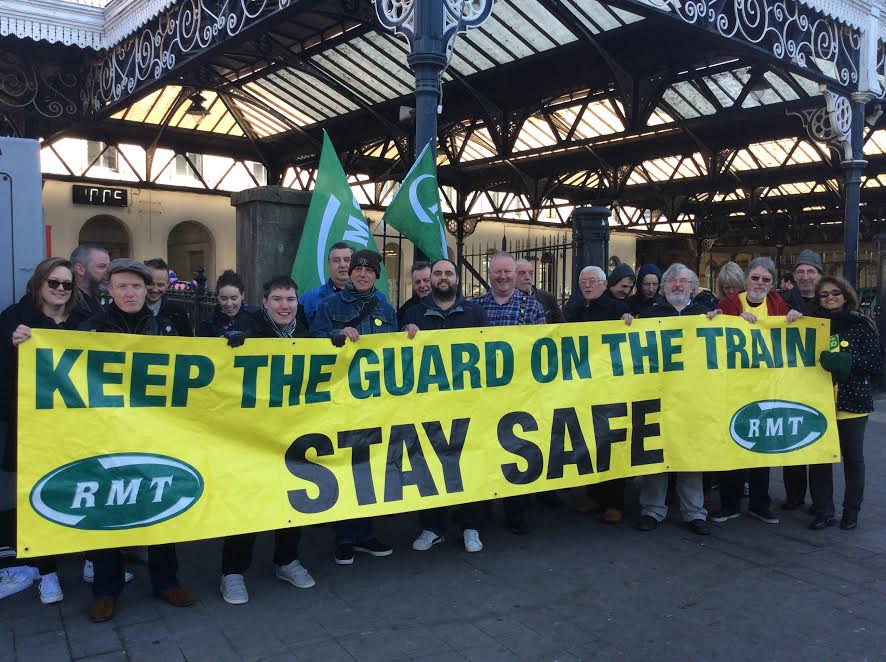The series of strikes called by the RMT union have dented Southern profits again, according to a London Stock Exchange announcement today (Thursday 7 September).
And Southern’s ultimate boss David Brown apologised to passengers as he said that “service levels” were starting to improve.
Mr Brown, chief executive of the Go-Ahead Group, said that revenues in the year to Saturday 1 July were £3.48 billion, up from £3.36 billion the year before.
Those revenues included earnings from Govia Thameslink Railway (GTR), which operates Southern and Thameslink trains, as well as Brighton and Hove Buses.
Despite the rise in revenues, profit before tax fell from £145 million to £137 million.
Mr Brown said: “In GTR, industrial relations issues affected our customers, our colleagues and our profitability.
“We apologise to our Southern passengers who have been inconvenienced for many months by disruption caused by industrial action.
“Service improvements began to be realised in the second half of the year but there is still a lot of work to be done to deliver the level of service we and our customers expect.
“Our primary aim is to improve service for passengers and we are resolute in this commitment.”
“If not for some one-off costs in regional bus, we would have seen profit growth, rather than the consistent performance delivered year on year.
“Go-Ahead’s regional bus operation received the highest levels of customer satisfaction in the sector, up to 90 per cent in the latest survey and exceeding the levels of satisfaction achieved by some of Britain’s best-loved brands.
“Our local bus businesses are focused on improving customer experience, including making it easier to pay for travel.
“During the year, the latest contactless technology was introduced across a number of our operations.
“We plan for contactless payments to be available to every Go-Ahead bus customer by the end of the year.”
Go-Ahead said that operating profits in the bus division, which includes a number of bus companies outside Brighton and Hove, dipped from £91.2 million to £90.7 million.
In the rail division they fell from £71.4 million to £59.9 million.
The company said that an agreement had been reached in July with the Department for Transport on “variations” to the GTR contact “relating to industrial action”.
The contract variations had, the company said, “reduced financial uncertainty”.
Passenger numbers on GTR trains fell by 4.1 per cent over the year, during which the RMT called a number of strikes by guards over the introduction of changes to their role.
The most recent strike took place on Monday (4 September).
The train drivers’ union ASLEF has suspended industrial action while it holds talks with GTR about the introduction of “driver-only operation” of new trains.
But the RMT remains in dispute with the company over the changes. Trains guards belonging to the union have been redesignated as on-board supervisors. They believe that the changes focus more on revenue and less on passenger safety.








